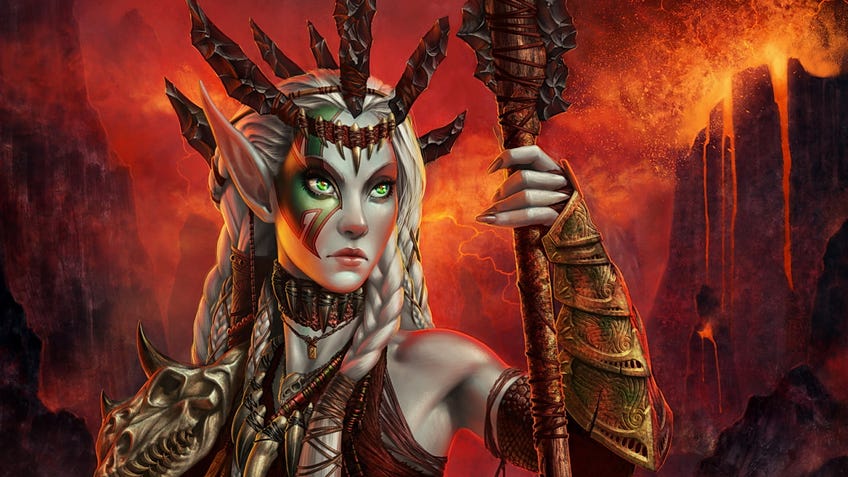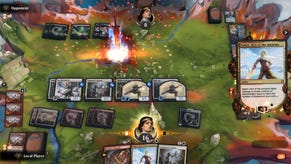Magic: The Gathering creators ditch ‘tribal’ at urging of cultural consultants
Mark Rosewater explains the switch to 'typal' won't affect anything but official messaging.
Magic: The Gathering’s internal teams apparently ditched a common term players use when referring to cards and decks, according to Head Designer Mark Rosewater on Twitter.
Cultural consultants suggested dropping ‘tribal’ due to harmful connotations, and the popular trading card game’s makers eventually landed on ‘typal’. Don’t expect to see the replacement show up on printed cards anytime soon - Rosewater explained in his Twitter thread that the change affected ‘internal vocabulary words’ only. While official blogs and other articles might mention it, MTG will avoid the use of either in rules text.
‘Tribal’ began as a way to refer to cards that cared about creature types, often bestowing bonuses and other effects based on the number of same-type creatures on a player’s battlefield. The most common of these runs smack dab into another hobby-specific term: Lords. Take Elvish Archdruid as an example: the creature gives each other Elf creature +1/+1 and taps for green Mana equal to the number of elves that the player controls.
These sort of cards form the backbone of what’s known as tribal decks, which fill their ranks with similar creature types ranging from Elves and Pirates to Myr and even Squirrels. Building a deck like this offers a fun puzzle that doesn’t require an encyclopaedic knowledge of MTG - searching ‘dragon’ in EDHRec or Scryfall is a fairly accessible starting point.
Rosewater mentioned at the start of his Twitter thread that the community had been discussing the tribal/typal language usage since he called attention to the internal change in a recent blog. He said “Multiple consultants recommended we stop using the language, so we decided to change it”, likely referencing the harmful connotations often baked into the use of ‘tribal’. At best, it thoughtlessly trucks in an understanding of largely non-white tribal societies as inherently primitive and naive to ‘modernity’. At worst, it evokes Western empires’ long history of treating indigenous people as savage and uncultured, often excusing the genocide and imperialism inflicted upon them.
MTG’s internal design team apparently warmed to ‘typal’ shortly after its implementation, and there’s a strong argument for its broader adoption both in the playerbase and on official cards. Tribal has appeared on cards in the past, most often appended to the Type line below card art to denote its provenance from a specific creature type. It’s also been used in the name of four cards but is otherwise absent from rules text, making its official retirement an easy matter.
Rosewater did not say that publisher Wizards of the Coast would adopt an official stance on putting ‘tribal’ out to pasture, instead apparently relying on its implicit absence from design posts and comments to serve as the company’s stance. When your card game is fast reaching its 30th birthday, it makes sense that a few culturally insensitive skeletons may still bang around the closet. Establishing a hard, explicit opinion on retiring ‘tribal’ would grease the wheels on a more widespread adoption of ‘typal’ - a better word if only because of the plosives.








